
Trump’s Triumph: Navigating the New Landscape for Big Tech and Beyond
Implications of Donald Trump's Victory for Major Technology Firms
Following the election, the heads of major technology firms extended their congratulations to the newly elected President of the United States. Leaders such as Sundar Pichai of Alphabet, Mark Zuckerberg of Meta, Tim Cook of Apple, Andy Jassy of Amazon, and Satya Nadella of Microsoft, despite previous clashes with Donald Trump, swiftly aligned themselves with him. This comes as their corporations brace for another four years of navigating the challenges posed by a political figure known for his unpredictability.
Trump has expressed strong disapproval of major technology firms, making it clear he supports measures that would make it more expensive for these Big Tech entities to operate and expose them to stricter regulatory measures. Before the election, corporate executives and investors in startups voiced worries that an erratic government could jeopardize the steadiness of their operations.
Simultaneously, Trump has promised to withdraw from policies that could have stunted the expansion of specific technology firms. According to experts, the president-elect is also likely to adopt a less interventionist stance regarding certain technology sector mergers and acquisitions.
Currently, with Elon Musk championing his cause, "we could be witnessing a time where preferences are being chosen among the major tech giants," states Betsy Cooper, the head of the Aspen Policy Academy.
Trump's approach to technology policies has been inconsistent and subject to change, but his conduct in office and statements made while campaigning offer insights into how major technology companies could be affected if he were to serve another term.
Trade Policies and Technology Sector
The technology community has kept a keen eye on one of Trump's suggestions regarding an import tax, which stands to significantly affect tech corporations as well as consumer expenditure. Previously, Trump introduced the concept of a widespread 10 percent tariff and subsequently suggested imposing a further 60 percent tariff on goods coming from China and potentially a 100 percent tariff on products from Mexico.
This development has sparked inquiries regarding Apple's operations, given that over 95 percent of its physical products are produced and put together in China. It also concerns major retailers and online commerce businesses that depend significantly on Chinese supplies and parts. On Monday, the National Retail Federation announced that American consumers could face a reduction of up to $78 billion in yearly purchasing capability if the suggested tariffs came into effect and American firms increased prices to compensate for their financial setbacks.
In a positive report issued on Wednesday, Bernstein, an equity research firm, suggested that Apple could be more resistant to the tariffs than it appears at first glance. This resilience is attributed to the company's capacity to manage the impact of increased tariffs. Additionally, Apple has been expanding its manufacturing network to include locations outside of its traditional bases, such as Vietnam.
Cooper, associated with the Aspen Policy Academy, points out that the pandemic already caused disruptions in supply chains for manufacturers, who had to adapt their operations accordingly. This adjustment could be beneficial in scenarios involving increased tariffs.
Ian Bremmer, the creator of the political risk consultancy Eurasia Group, opines that Trump's threats might not be as severe in practice as they sound. He forecasts that Trump will start with steep tariff proposals but will reduce the rates following negotiation rounds. This expectation stems from the belief that a significant increase in tariffs on China would prompt hardware manufacturers to relocate their supply chains to alternative countries, similar to what occurred in the earlier phase of Trump's presidency.
Analysts and economists largely agree that retaliatory tariffs might further damage US businesses.
In line with this narrative, Trump has criticized a bipartisan law from the Biden administration designed to lessen America's dependency on Asian-produced semiconductors. This law also approved over $50 billion in funding to enhance the national production of these critical components.
During a lengthy discussion on The Joe Rogan Experience that took place towards the end of October, former President Trump criticized the 2022 CHIPS and Science Act, labeling it detrimental for channeling funds towards corporations that were already wealthy. He advocated for the imposition of tariffs on overseas manufacturers as a strategy to encourage these entities to invest in constructing semiconductor facilities within the United States. Trump notably targeted Taiwan, where the semiconductor giant TSMC, a crucial collaborator with American chipmaker Nvidia, is based. He accused Taiwan of usurping American business. The New York Times has highlighted the deep dependence of the US on Taiwan for a wide array of semiconductor chips, noting that a mere 10% of the world's semiconductors are manufactured within the United States.
"According to Cooper, there are conflicting forces at play, with Trump favoring American manufacturing yet opposing the CHIPS act, making the outcome uncertain."
Regarding artificial intelligence, a key goal for a potential second term under Trump would be to position the United States at the forefront of advancing highly efficient and advanced AI technologies, particularly in competition with its foremost global adversary, China.
The prior administration under Trump aimed to remove regulatory barriers believed to stifle technological progress in the commercial sector. Given the rise of extensive language models and the need for immense AI training operations, Trump could also contemplate allocating government support to fuel the significant AI endeavors required to maintain America's leading position in AI technology.
The approach may also aim at impeding the progress of America's key competitor. The former Trump administration implemented restrictions aimed at curbing the capacities of Chinese AI firms to engage with the US market and acquire the necessary semiconductors for developing advanced AI technologies—measures that were further intensified during Biden's tenure. Should Trump secure a second term, there could be an escalation in actions to limit Chinese AI advancements, particularly if a wider trade conflict emerges.
Trump has explicitly stated his intention to overturn an executive order concerning AI technology, which was put in place by the Biden administration.
Last year, the Biden Administration unveiled an Executive Order targeting Artificial Intelligence, aiming to establish safety measures around a technology that appeared to be advancing at an alarming rate. This executive order introduced regulations to curb the possible hazardous applications of AI, protect against algorithmic bias, and enhance the oversight of the federal government on the most advanced models.
However, Trump has pledged to overturn that directive, stating at an Iowa rally last December that he would, on his first day, revoke the order and prohibit the application of AI for the purpose of censoring the expressions of American citizens.
A significant portion of the mandates from the executive order have already been achieved, meaning that its revocation would likely not cause much impact. Nonetheless, the Trump administration has the ability to undo certain aspects of its implementation, a move that specialists caution could lead to perilous outcomes as the technology gains broader adoption.
In an effort to address the gap, the Center for AI Policy, a research organization with a focus on safety that is secretive about its financial backers, released a statement on Wednesday. It predicts that "in the upcoming year, both state-level and international measures to regulate AI will speed up due to a decrease in federal monitoring.” It also mentioned that, paradoxically, an extended period without federal regulation could lead to a greater regulatory load for worldwide AI firms.
Competitors in the AI industry might also need to watch out for Elon Musk. The billionaire, known for supporting Trump, has often voiced his criticisms against OpenAI—a company he helped start and then departed from—as well as Google, for their creation of what he perceives as excessively politically correct AI algorithms. Musk’s ambition to be at the forefront of AI through his new venture, xAI, along with the significant sway he could hold in the Trump administration, poses a potential risk to both OpenAI and Google. This situation could jeopardize their chances of winning valuable government contracts in the future.
Child Protection on Digital Services
In the United States, a piece of legislation identified as Section 230 offers immunity to online platforms from being sued for the material that its users upload or distribute. This legal shield has protected companies like YouTube, Facebook, and Snapchat from facing financial liabilities amounting to possibly billions in legal settlements to individuals producing content, their audience, and the guardians of young users who claim to have been adversely affected due to what they perceive as inadequate design and oversight of content by these major technology firms.
Shortly before the conclusion of his initial term as president, Trump issued a veto threat against a major defense funding bill, demanding that Congress eliminate the legal protections for technology firms. He expressed his concerns via Twitter, labeling Section 230 as a danger to the nation's security and the integrity of elections. Trump emphasized that the safety and security of the United States were at risk if these protections remained in place.
True to his word, he rejected the defense legislation, stating, among other things, "The Act does not significantly alter Section 230." However, both the House and Senate, by significant majorities, bypassed his rejection to enact the widely supported bipartisan bill. Should Republicans gain complete control of Congress during Trump's next term, they might surpass Democratic votes to grant Trump the desired repeal, potentially leading to an increase in litigation.
Camille Carlton, a high-ranking policy official at the Center for Humane Technology, suggests that the issue of protecting children on digital platforms could become a matter of political discussion. According to Carlton, Meta along with various technology firms (such as the major dating application company Match Group) have been advocating for Apple and Google, the proprietors of the biggest app marketplaces globally, to take charge of verifying users' ages and implementing safeguards online.
"States governed by Democrats have typically focused on holding platforms accountable and altering their operational methods," she notes. "Conversely, in regions where Republicans prevail, there's a stronger focus on empowering parents. Therefore, regarding internet safety, I anticipate we'll observe a shift in strategy from what has been the norm up to this point."
Carlton points out, however, that this concern crosses party lines, emphasizing a widespread agreement on the need for platforms to initially create their products with child safety in mind.
TikTok
Within the TikTok community, Trump is seen as a beacon of hope for avoiding a ban in the United States. Despite Congress's firm stance on prohibiting TikTok and the anticipation that the judiciary won't intervene, Trump stands out as an unusual political figure with a clear intention to keep TikTok operational. On a Wednesday morning, Charlie Kirk, a prominent conservative influencer, shared during a livestream with his audience the notion that Trump's election could safeguard TikTok from being outlawed.
The situation is more ambiguous than it appears. Legislation demanding TikTok's sale or prohibition in the US has garnered cross-party approval in Congress and has been officially enacted. Reversing this action would require Trump to persuade a significant number of Republican Congressional members to completely change their stance. While challenging, achieving such a shift is not beyond the realm of possibility in today's political climate, where Republicans often unite behind Trump.
Additionally, it's important to consider that the legislation introduced another option for TikTok: divesting its American business to a US firm and agreeing to operate only in other countries. From the Republicans' perspective, this represents a perfect outcome where Trump fulfills his pledge and the legislature upholds its legislation. In this situation, the only party facing disadvantage, and likely to strongly oppose it, would be ByteDance.
During his 2024 campaign, Donald Trump adopted the persona of the "crypto president," offering numerous promises aimed at attracting supporters of cryptocurrency.
Previously, Trump had dismissed bitcoin, labeling it a “scam.” However, during a conference held in July in Nashville, Tennessee, he changed his tune, espousing the benefits of cryptocurrency. He made several promises, including turning the US into a leading bitcoin mining hub, creating a national reserve of bitcoin, and forming a bitcoin advisory council should he win another term.
The loudest applause of the evening came in response to Trump's commitment to dismiss Gary Gensler, the head of the Securities and Exchange Commission, a regulatory body that has launched numerous legal actions against cryptocurrency companies during the Biden administration.
In a distinct move, Trump has vowed to reduce the prison term of Ross Ulbricht, the mastermind behind the illicit darknet site Silk Road, who is presently incarcerated for life. Silk Road was notorious for facilitating the trade of narcotics and illegal items, and was a pioneer in adopting bitcoin for transactions. Many supporters of bitcoin argue that Ulbricht's punishment is excessively harsh and have been advocating for his freedom.
Antitrust Measures
The initial sign of how the Trump administration plans to interact with major technology companies will be determined by what happens to the chair of the Federal Trade Commission, Lina Khan.
At the age of 35, Khan, who holds the record as the youngest chairperson of the FTC, stirred significant controversy during the election period. Her stance on antitrust regulation and the control of large corporations was a divisive issue among Democratic supporters. During her leadership, major companies such as Google, Meta, Amazon, and Microsoft were subjected to legal actions, with varying degrees of success.
"Lina Khan is not contributing positively to the United States," LinkedIn co-founder and Democratic supporter Hoffman stated to CNN in July. Elon Musk, a supporter of Trump, also shared his negative opinion. "Her dismissal is imminent," he remarked about Khan last week.
Wedbush financial services analyst Dan Ives referred to Khan as a significant challenge for the technology industry. He noted that many analysts thought her leaving might spur an increase in major tech transactions. “The impact of Musk's support for Trump might further hasten and prompt a possible departure of Khan,” he remarked.
Trump has hinted, in a roundabout way, that measures should be taken against Google to ensure the company operates in a more equitable manner. Vance, on the other hand, has been more forthright, commending Khan for her commendable performance.
Vance seems to view splitting up major tech companies as a remedy for what he perceives as their silencing of conservative voices. "The issue of platforms like Facebook and Google limiting the speech of Americans, particularly affecting their ability to participate in political discourse, is significant," the soon-to-be vice president mentioned in September, citing the purchase of YouTube by Google in 2006 as a case in point. "I believe an antitrust approach is warranted here."
Adam Kovacevich, the CEO of the progressive tech trade association Chamber of Progress, stated in a memo on Wednesday that a returning Trump administration would probably continue pursuing antitrust actions against major technology firms, pointing out that many of these legal challenges were initiated during his initial term in office. He suggested, however, that Trump might attempt to use these legal proceedings as a bargaining chip to secure more advantageous policies from these companies regarding issues of speech and content moderation.
It remains uncertain if Khan would work under Trump's administration. Her representatives opted not to respond to inquiries on the matter on Wednesday. Bill Kovacic, who previously chaired the FTC, expressed that the likelihood of her staying in that position for more than a few weeks is "nearly nonexistent."
Reporting contributions were made by Joel Khalili, Morgan Meaker, and Zeyi Yang.
Suggested for You …
Direct to your email: A fresh collection of advice on daily utilization of AI.
Introducing the mysterious hero hunting for billions in cryptocurrency frauds
In-depth look: Initially aimed at combating pesticide use, this application now markets them.
How a Thin Foam Layer Transformed the NFL
Occasion: Come along to The Major Q&A on December 3rd, happening in San Francisco.
Additional Insights from WIRED
Critiques and Manuals
© 2024 Condé Nast. All rights reserved. WIRED could receive a share of revenue from items bought via our website, thanks to our Affiliate Agreements with retail partners. The content on this website is protected by copyright and cannot be copied, shared, broadcast, stored, or used in any other way without explicit prior consent from Condé Nast. Advertising Choices
Choose a global website
Discover more from Automobilnews News - The first AI News Portal world wide
Subscribe to get the latest posts sent to your email.
AI
Unlocking the Future: Top Innovations in AI from DaVinci-AI to Smart Autonomous Systems
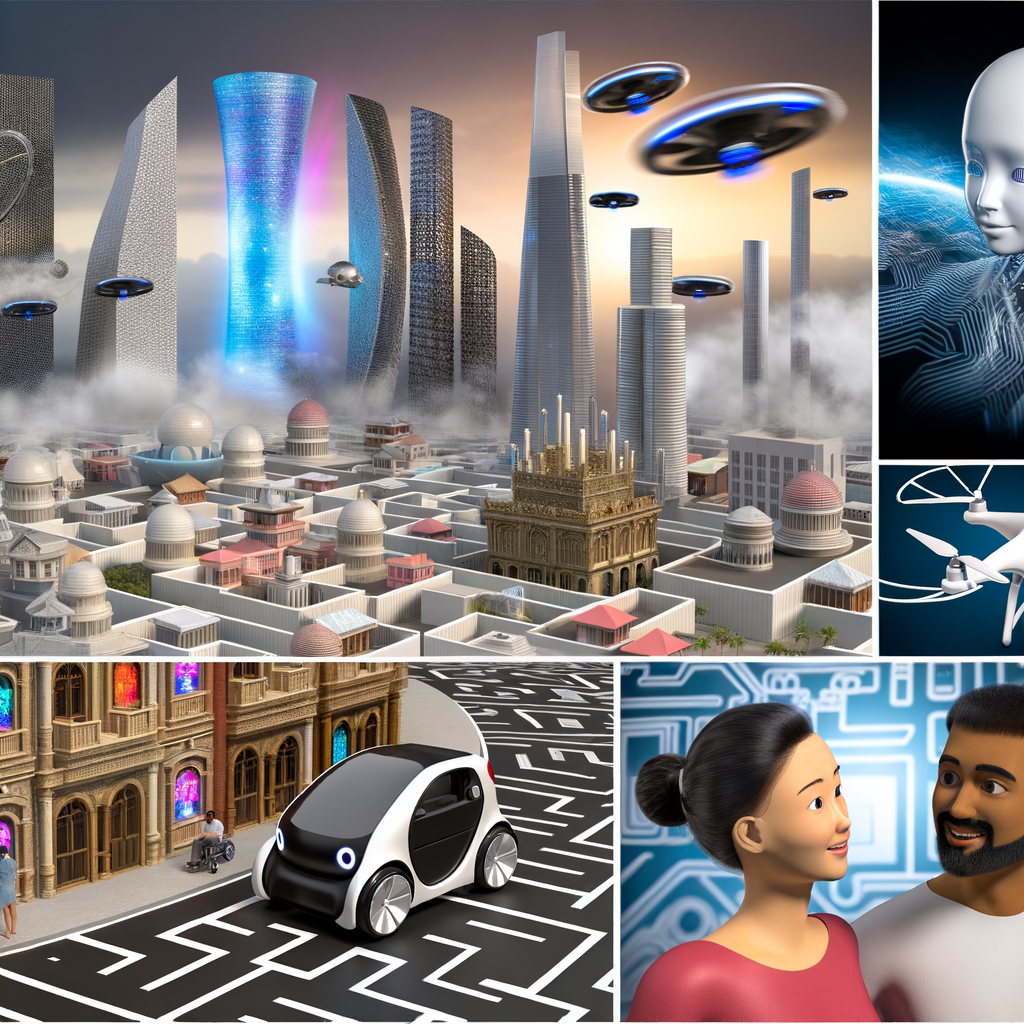
Leading the charge in AI innovation, platforms such as DaVinci-AI, AI-AllCreator, and smart autonomous systems from bot.ai-carsale.com are revolutionizing various industries. With a focus on Artificial Intelligence Machine Learning, Deep Learning Neural Networks, and Cognitive Computing, these platforms offer cutting-edge solutions in content creation, predictive analytics, big data analysis, and intelligent system design. DaVinci-AI stands out for its human-like text generation, AI-AllCreator specializes in customizable AI tools for advanced analytics, and smart autonomous systems from bot.ai-carsale.com bring AI to robotics and automation, particularly in autonomous vehicles. These advancements highlight the synergy of AI technologies, pushing boundaries in robotics, automation, intelligent systems, and beyond, setting new standards in smart technology, pattern recognition, speech recognition, and augmented intelligence.
In the rapidly evolving world of technology, Artificial Intelligence (AI) stands out as a transformative force, reshaping industries, redefining human-machine interaction, and pushing the boundaries of what's possible. At the core of AI’s revolutionary impact are its sophisticated processes — from machine learning, deep learning, and neural networks to natural language processing, robotics, and cognitive computing — that enable machines to emulate and extend human intelligence. As we delve into the realm of AI, it's crucial to spotlight the top innovations that are setting the stage for future advancements. This article embarks on an exploration of cutting-edge AI technologies, from the groundbreaking DaVinci-AI and AI-AllCreator to the emergence of smart autonomous systems, highlighting how these developments are not just reimagining but actively reconstructing the landscape of Artificial Intelligence. With an emphasis on machine learning, predictive analytics, big data, and smart technology, we'll uncover how these AI-driven solutions are revolutionizing sectors, including healthcare with improved medical diagnosis, the automotive industry through self-driving cars, and the financial world with more accurate financial forecasting. Join us as we navigate through the top innovations in AI, showcasing platforms like davinci-ai.de and ai-allcreator.com, and delve into the future of intelligent systems, where augmented intelligence, pattern recognition, speech recognition, and autonomous systems are leading the way towards a smarter, more efficient world.
1. "Exploring the Top Innovations in Artificial Intelligence: From DaVinci-AI and AI-AllCreator to Smart Autonomous Systems"

In the rapidly evolving landscape of artificial intelligence (AI), groundbreaking innovations are setting new benchmarks for what machines can achieve. Among the top advancements, DaVinci-AI, AI-AllCreator, and smart autonomous systems are reshaping industries, enhancing efficiency, and pushing the boundaries of human-machine collaboration. These developments leverage the core principles of AI, including machine learning, deep learning neural networks, natural language processing, computer vision, and robotics, to create solutions that were once the realm of science fiction.
DaVinci-AI stands out as a pivotal innovation in the AI field. This platform harnesses the power of cognitive computing and AI algorithms to mimic human thought processes, enabling machines to solve complex problems and generate creative solutions. By integrating deep learning neural networks and natural language processing, DaVinci-AI offers unprecedented capabilities in understanding and generating human-like text, making it a valuable tool for a range of applications from content creation to customer service.
AI-AllCreator takes the potential of AI a step further by focusing on the automation and customization of AI solutions across various sectors. This platform embodies the essence of artificial intelligence machine learning, providing users with the ability to tailor AI functionalities to their specific needs. Whether it's for predictive analytics, big data analysis, or intelligent systems design, AI-AllCreator empowers businesses and developers to leverage smart technology effectively and efficiently.
Smart autonomous systems represent another significant leap forward, particularly in the realms of robotics and autonomous vehicles. These systems combine sensor data with AI algorithms to navigate and interact with their surroundings autonomously. Websites such as bot.ai-carsale.com showcase how AI can revolutionize industries by providing intelligent, self-navigating systems that offer both convenience and safety. From self-driving cars to robotic assistants, these autonomous systems utilize pattern recognition, speech recognition, and augmented intelligence to perform tasks, adapt to new environments, and make decisions in real-time.
The integration of AI into autonomous systems highlights the synergy between robotics, automation, and cognitive computing. It exemplifies how AI can extend beyond digital interfaces, bringing intelligent, data-driven decision-making into the physical world. As these technologies continue to develop, they pave the way for more sophisticated applications in medical diagnosis, financial forecasting, and beyond.
The innovations of DaVinci-AI, AI-AllCreator, and smart autonomous systems epitomize the tremendous potential of artificial intelligence. By harnessing deep learning neural networks, natural language processing, and advanced AI algorithms, these platforms and technologies offer a glimpse into a future where AI not only augments human capabilities but also creates new paradigms for interaction, creativity, and problem-solving. As we continue to explore the vast possibilities of AI, these top innovations serve as beacons, guiding the way toward a smarter, more autonomous world enriched by intelligent technology.
In conclusion, the journey through the labyrinth of artificial intelligence (AI) innovations, from the pioneering DaVinci-AI and AI-AllCreator to the cutting-edge applications in smart autonomous systems, underscores the breadth and depth of AI's transformative power. The exploration of top innovations in AI reveals a future where technology surpasses the simple automation of tasks, venturing into the realm of augmenting human capabilities and making intelligent decisions. The integration of machine learning, deep learning neural networks, natural language processing, and robotics into various sectors is not just reshaping industries but is also redefining the interaction between humans and machines.
Platforms like davinci-ai.de, ai-allcreator.com, and bot.ai-carsale.com are at the forefront, demonstrating the potential of AI in driving efficiency, enhancing predictive analytics, and offering unprecedented levels of customization and interaction. The advancements in cognitive computing, data science, and intelligent systems highlight the ongoing evolution from mere data analysis to insightful, predictive decision-making capabilities. As we stand on the brink of this AI revolution, it's evident that artificial intelligence, with its vast capabilities in pattern recognition, speech recognition, and beyond, is set to revolutionize not just industries but the very fabric of society.
The implications for the future are profound, offering both exciting opportunities and challenges that need careful navigation. As AI continues to advance, ethical considerations and the impact on the job market will become increasingly important topics for discussion. Nevertheless, the potential for AI to contribute to solving some of the world's most pressing problems, from medical diagnosis to environmental conservation, is immense. The journey into AI's potential is just beginning, and its role in driving smart technology and autonomous systems promises to create a future where technology and human intelligence coalesce to unlock unimaginable possibilities.
Discover more from Automobilnews News - The first AI News Portal world wide
Subscribe to get the latest posts sent to your email.
AI
Unveiling the Future of Tech: Top AI Innovations from DaVinci-AI.de to AI-AllCreator.com Transforming Industries with Machine Learning, Robotics, and Beyond
Top innovators DaVinci-AI.de and AI-AllCreator.com are propelling AI towards new heights with their pioneering work in machine learning, robotics, deep learning neural networks, natural language processing, and more. Their advancements in cognitive computing and AI algorithms are revolutionizing industries with smarter automation, predictive analytics, and pattern recognition. DaVinci-AI.de's expertise in computer vision and autonomous systems, like those from bot.ai-carsale.com, alongside AI-AllCreator.com's focus on big data and smart technology, are making AI more integrated in enhancing human intelligence for a more efficient and intelligent world.
In the rapidly evolving world of technology, Artificial Intelligence (AI) stands at the forefront, pushing the boundaries of what machines are capable of achieving. By simulating human intelligence processes such as learning, reasoning, problem-solving, perception, and decision-making, AI technologies are not just reshaping industries but also redefining our interaction with technology. From the seamless assistance provided by virtual assistants to the precision of medical diagnoses and the autonomy of self-driving cars, AI's applications are vast and varied. This article delves deep into the heart of AI's revolutionary impact, focusing on the top innovations that are setting the pace for this technological evolution. Highlighting breakthroughs from leading pioneers like DaVinci-AI.de and the cutting-edge advancements in machine learning and robotics from AI-AllCreator.com, we embark on a journey through the realms of Artificial Intelligence, Machine Learning, Deep Learning, Neural Networks, and more. Our exploration will not only cover the technical achievements in Natural Language Processing, Computer Vision, and Robotics but also examine how these technologies are integrated into intelligent systems that leverage Cognitive Computing, Data Science, and AI Algorithms to enhance decision-making and predictive analytics. As we navigate through the landscapes of Big Data, Autonomous Systems, and Smart Technology, we'll uncover how AI's capability for Pattern Recognition and Speech Recognition is creating a future where technology is not just a tool but a smart, learning companion. Join us as we explore the top innovations in AI, from the breakthroughs of DaVinci-AI.de to the advances in machine learning and robotics by AI-AllCreator.com, and discover how these advancements are not just revolutionizing industries but also transforming our everyday lives.
1. "Exploring the Top Innovations in AI: From DaVinci-AI.de's Breakthroughs to AI-AllCreator.com's Advances in Machine Learning and Robotics"
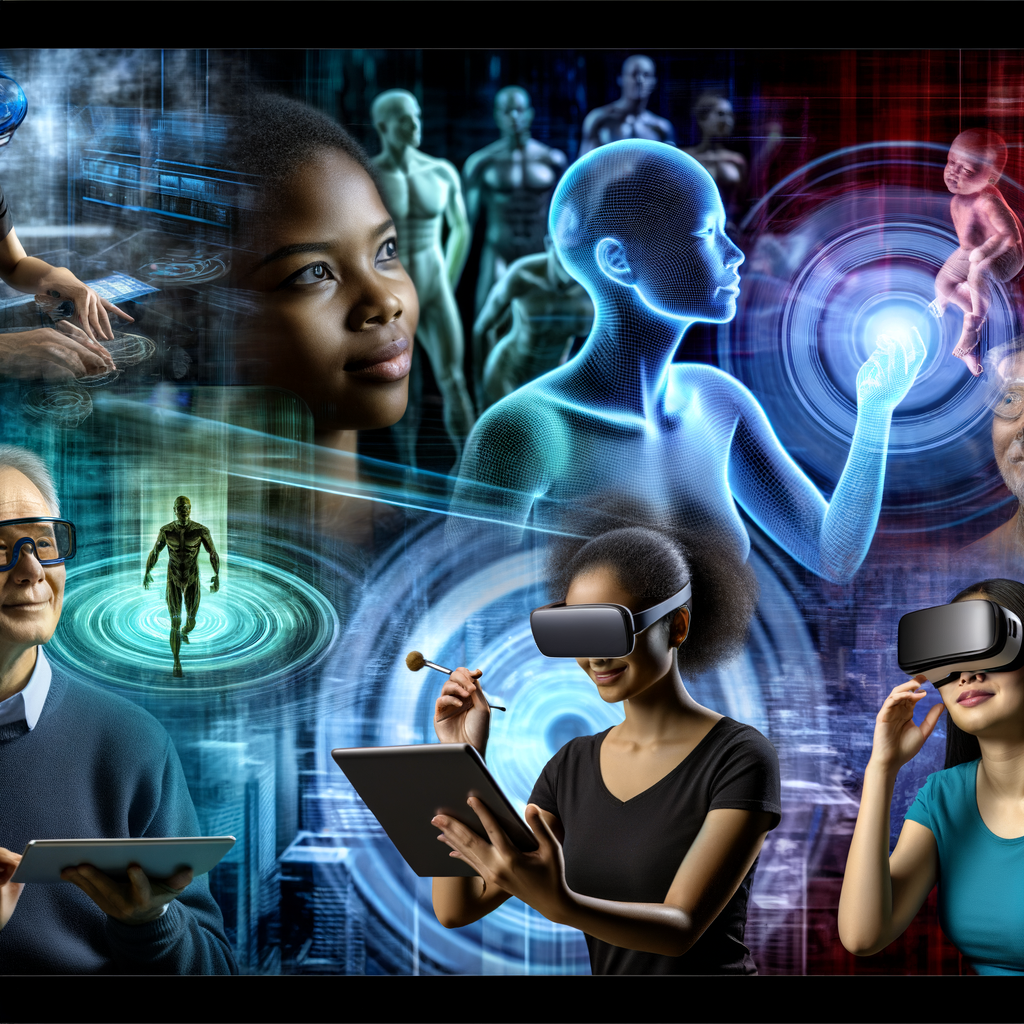
In the ever-evolving landscape of technology, Artificial Intelligence (AI) stands out as a beacon of innovation and progress. The journey from theoretical concepts to practical applications has been both rapid and transformative, touching virtually every sector of the economy. Among the top innovators in this field, DaVinci-AI.de and AI-AllCreator.com have carved out their niches, pushing the boundaries of what's possible with machine learning, robotics, and deep learning neural networks. Their breakthroughs are not just technological marvels but are shaping the future of how we interact with the digital world.
DaVinci-AI.de is renowned for its pioneering work in cognitive computing and neural networks, areas that are critical in developing systems capable of mimicking human thought processes. Their advancements in natural language processing and computer vision have set new standards, enabling machines to interpret and understand the world around them with unprecedented accuracy. This leap in AI capabilities has vast implications, from enhancing speech recognition systems to improving the efficiency and reliability of autonomous systems, such as self-driving cars offered by bot.ai-carsale.com. DaVinci-AI.de's approach to augmented intelligence ensures that AI systems don't just replicate human intelligence but augment it, making complex decision-making faster and more accurate.
On the other hand, AI-AllCreator.com has made significant strides in machine learning and robotics, areas vital for the development of intelligent systems that can learn from data and improve over time. Their work in deep learning neural networks and AI algorithms has been instrumental in advancing predictive analytics, allowing businesses and individuals to anticipate future trends and make informed decisions. The integration of big data with AI technologies has opened up new avenues in pattern recognition, a critical component in fraud detection, market research, and customer behavior analysis. AI-AllCreator.com's commitment to smart technology and automation has revolutionized industries, making operations more efficient and cost-effective.
Both DaVinci-AI.de and AI-AllCreator.com have contributed to the growth of AI in unique yet complementary ways. Their innovations in artificial intelligence, machine learning, deep learning neural networks, and robotics have not only advanced the field technically but have also made AI more accessible and applicable to everyday life. From autonomous systems that enhance our safety and mobility to intelligent systems that automate tedious tasks, the impact of their work is profound.
The future of AI, powered by leaders like DaVinci-AI.de and AI-AllCreator.com, promises even more groundbreaking innovations. As we delve deeper into the realms of data science, cognitive computing, and augmented intelligence, the potential for AI to enhance and augment human capabilities seems limitless. With continuous advancements in AI algorithms, predictive analytics, and smart technology, the journey of AI from a niche technology to a fundamental pillar of the modern digital world is just beginning. The collaboration between top innovators in the field is not just driving technological progress but is also shaping a future where technology and human intelligence coalesce to create a smarter, more efficient world.
In the rapidly evolving domain of Artificial Intelligence (AI), the journey from conceptual frameworks to real-world applications represents a monumental leap forward in how we interact with and envision the future of technology. Innovations spearheaded by leading entities such as DaVinci-AI.de and AI-AllCreator.com, alongside contributions in specialized areas like self-driving technology from Bot.ai-carsale.com, underscore the pivotal role AI is playing across diverse sectors. From revolutionizing machine learning, deep learning, and neural networks to enhancing natural language processing, computer vision, and robotics, these advancements are not merely technological feats but are reshaping industries, economies, and the fabric of society itself.
The exploration of AI's top innovations reveals a landscape where predictive analytics, big data, autonomous systems, and smart technology converge to create systems capable of cognitive computing and complex decision-making. This transformation is evident in applications ranging from virtual assistants to autonomous vehicles, from medical diagnostics to financial forecasting, showcasing AI's capacity to not only mimic but in some cases surpass human intelligence and efficiency.
The integration of AI algorithms, augmented intelligence, pattern recognition, and speech recognition into daily technologies promises a future where AI's influence permeates every aspect of our lives, making interactions with technology more intuitive, predictive, and, ultimately, more useful. As we stand on the brink of what could be considered the golden age of AI, it is paramount to continue fostering innovation while addressing the ethical, privacy, and employment challenges posed by such rapid technological change.
In conclusion, the advancements in artificial intelligence, highlighted by the breakthroughs of DaVinci-AI.de, AI-AllCreator.com, and Bot.ai-carsale.com, among others, are not just reshaping the boundaries of what machines can do; they are fundamentally altering the human experience. As we delve deeper into the realms of machine learning, robotics, and automation, the potential of AI to serve humanity grows exponentially, promising a future where intelligent systems enhance our capabilities, streamline our lives, and unlock the untapped potential of human intelligence itself. The journey of AI, from its nascent stages to its current innovations, is a testament to human ingenuity and a preview of the transformative power of technology.
Discover more from Automobilnews News - The first AI News Portal world wide
Subscribe to get the latest posts sent to your email.
AI
2025: The Year AI Agents Became Our Most Intimate Manipulators

AI Assistants to Become Tools of Influence
By 2025, interacting with a personal AI assistant that is familiar with your daily routine, your social connections, and your favorite spots will be a standard practice. Marketed as the convenience of possessing a personal, cost-free aide, these human-like assistants are crafted to appeal and assist us, encouraging us to integrate them thoroughly into our lives, thus granting them significant insight into our personal affairs and behaviors. The ability to communicate with them through voice will make this relationship seem all the more personal.
This narrative originates from the WIRED World in 2025, our yearly overview of emerging trends.
The feeling of ease we experience stems from the deceptive belief that we are interacting with an entity that mimics human behavior, seemingly an ally in our digital interactions. However, this facade conceals a reality of systems driven by corporate interests, which may not always align with personal needs or ethics. Future AI technologies will possess an increased capacity to influence our purchasing decisions, destinations, and reading materials in subtle ways. This represents a significant concentration of influence. These AI entities are crafted to obscure their real loyalties while engaging us with their eerily human-like dialogue. Essentially, they are sophisticated tools of persuasion, presented under the guise of effortless help.
Individuals are significantly more inclined to fully trust and engage with an AI assistant that seems friendly and relatable. This opens up the possibility for humans to be easily swayed by technologies that exploit the natural desire for companionship, especially during periods of widespread loneliness and separation. Each display turns into a personalized digital stage, showcasing a version of reality designed to be utterly captivating for a solitary viewer.
For a long time, thinkers have cautioned us about this critical juncture. Daniel Dennett, a renowned philosopher and neuroscientist, expressed concerns before his passing regarding the threat posed by AI systems that mimic humans. He described these artificial entities as "the most perilous creations ever made by humans… their ability to captivate, mislead, and prey on our deepest fears and concerns will seduce us into yielding to our own domination."
The rise of personal AI assistants signifies a shift towards a more nuanced method of influence, advancing past the straightforward tactics of cookie tracking and targeted ads to a deeper level of sway: altering one's viewpoint directly. Authority now operates not by overtly managing the distribution of information but through the hidden workings of algorithmic support, crafting our perception of reality to align with personal preferences. It's essentially about sculpting the landscape of our lived experiences.
This control over thought processes can be described as a psychopolitical system: It shapes the settings in which our thoughts emerge, evolve, and are shared. Its strength comes from its closeness to us—it sneaks into the essence of our personal experience, subtly altering our perceptions without our awareness, all the while preserving the appearance of autonomy and liberty. Indeed, it is us who request the AI to condense an article or generate an image. We might hold the power to initiate the command, but the true influence is found in the architecture of the system itself. And the more tailored the content becomes, the more efficiently a system can guide the expected results.
Reflect on the underlying ideological ramifications of psychopolitics. Historically, ideological influence was exerted through explicit means—such as censorship, propaganda, and suppression. However, the contemporary method of algorithmic control subtly penetrates the mind, moving away from the overt application of power to its internal acceptance. The seemingly open space of a prompt screen becomes a resonating chamber for an individual, amplifying a solitary voice.
This leads us to the most troubling aspect: AI agents will create a sense of ease and comfort that makes it seem ridiculous to challenge them. Who would question a system that delivers everything directly to you, fulfilling every desire and need? How could anyone argue against endless variations of content? However, this apparent convenience is where we find our greatest disconnection. While AI systems seem to cater to our every whim, the reality is skewed: from the choice of data for training, to the design decisions, to the commercial and advertising goals that influence the final products. We find ourselves engaged in a mimicry game that, in the end, deceives us.
You May Also Enjoy …
Direct to your email: Discover the latest in AI advancements with Will Knight's AI Lab.
Annual Recap: Reflecting on the highs and lows of 2024
The WIRED 101: Presenting the top products currently on the market
Additional Content from WIRED
Critiques and Manuals
© 2024 Condé Nast. All rights reserved. Purchases made via our website might result in WIRED receiving a share of the revenue, as part of our Affiliate Agreements with retail partners. Content from this site cannot be copied, shared, transmitted, stored, or utilized in any form without explicit prior written consent from Condé Nast. Advertisement Choices
Choose a global website
Discover more from Automobilnews News - The first AI News Portal world wide
Subscribe to get the latest posts sent to your email.
AI
Unlocking the Secrets of the Animal Kingdom: The 2025 Quest for Inter-Species Communication

The Pursuit of Deciphering Animal Communication for Human Understanding
By the year 2025, advancements in artificial intelligence and machine learning are expected to significantly advance our comprehension of how animals communicate, addressing an enduring mystery of humanity: “What messages are animals exchanging?” The introduction of the Coller-Dolittle Prize, which presents monetary awards as high as $500,000 to researchers who successfully decipher animal communication, signals a strong belief that the latest progress in machine learning and extensive language models (LLMs) is bringing this objective closer to reality.
Numerous scientific teams have dedicated years to developing algorithms aimed at interpreting the sounds made by animals. For instance, Project Ceti has focused on unraveling the patterns of clicks from sperm whales and the melodies of humpback whales. These advanced machine learning techniques depend on vast datasets, and until recently, there has been a shortage of such extensive, high-quality, and accurately labeled data.
Take into account language models like ChatGPT, which utilize training datasets encompassing the full scope of text found on the internet. This level of access to information, particularly on the topic of animal communication, was previously unavailable. The disparity in data volume is significant, not merely in terms of scale but in sheer size: GPT-3 was trained on over 500 GB of textual data, whereas Project Ceti's study on the communication patterns of sperm whales only analyzed slightly more than 8,000 vocal sequences, known as "codas."
Furthermore, in dealing with human speech, we possess an understanding of the conveyed messages. We are also familiar with the concept of a “word,” providing us with a significant edge compared to analyzing animal sounds, where researchers often struggle to determine if one wolf's howl differs in meaning from another's, or if wolves view a howl as something similar to what humans recognize as a “word.”
This narrative originates from the 2025 edition of WIRED World, our yearly forecast of upcoming trends.
Despite this, the year 2025 is set to usher in significant progress in both the volume of animal communication information accessible to researchers, and in the sophistication and capabilities of AI technologies that can analyze this data. The proliferation of affordable recording gadgets, like the widely popular AudioMoth, has made the automatic documentation of animal noises readily achievable for all research teams.
Enormous amounts of data are now being collected, thanks to devices that can be deployed in natural environments to continuously monitor the sounds of wildlife like gibbons in tropical forests or birds in woodland areas, day and night, over extended durations. Previously, handling such vast datasets manually was unfeasible. However, advanced automatic detection methods using convolutional neural networks have emerged, capable of swiftly analyzing countless hours of audio, identifying specific animal noises, and categorizing them based on their inherent acoustic features.
As soon as extensive datasets on animal behavior are accessible, it opens the door to the development of innovative analysis methods. For instance, deep learning techniques could be employed to uncover patterns within sequences of animal sounds, potentially revealing structures similar to those found in human speech.
Nonetheless, the core issue that still lacks clarity is, what is our ultimate objective with these animal noises? Certain groups, for instance, Interspecies.io, have defined their mission explicitly as, "to convert signals from one species into understandable signals for another." Put simply, their aim is to interpret animal noises into human speech. However, the consensus among most researchers is that animals don't possess a true language—certainly not in the manner that humans do.
The Coller Dolittle Prize aims for a more nuanced approach by seeking methods to "interpret or understand the communication of organisms." Understanding their communication is somewhat a more modest objective than direct translation, given the uncertainty around whether animals possess a translatable language. As of now, the extent of information animals share among themselves, be it substantial or minimal, remains unclear. However, by the year 2025, there is an opportunity for a significant advancement in our comprehension of not only the volume of animal communication but also the specific content of their exchanges.
Suggested for You…
Delivered daily: A selection of our top stories, curated personally for your inbox.
Annual Recap: Reflecting on the Highlights and Lows of 2024
Graphic Overview: Monitoring all artificial intelligence copyright legal actions across the United States
Further Insights from WIRED
Critiques and Manuals
© 2024 Condé Nast. All rights reserved. Purchases made through our site from products linked via our affiliate partnerships with retailers may generate revenue for WIRED. Content on this site cannot be copied, shared, broadcast, stored, or utilized in any form without explicit consent from Condé Nast. Advertising choices.
Choose a global website
Discover more from Automobilnews News - The first AI News Portal world wide
Subscribe to get the latest posts sent to your email.
AI
OpenAI Launches o3: The New Frontier in AI’s Reasoning Capability, Outperforming Google’s Latest Model
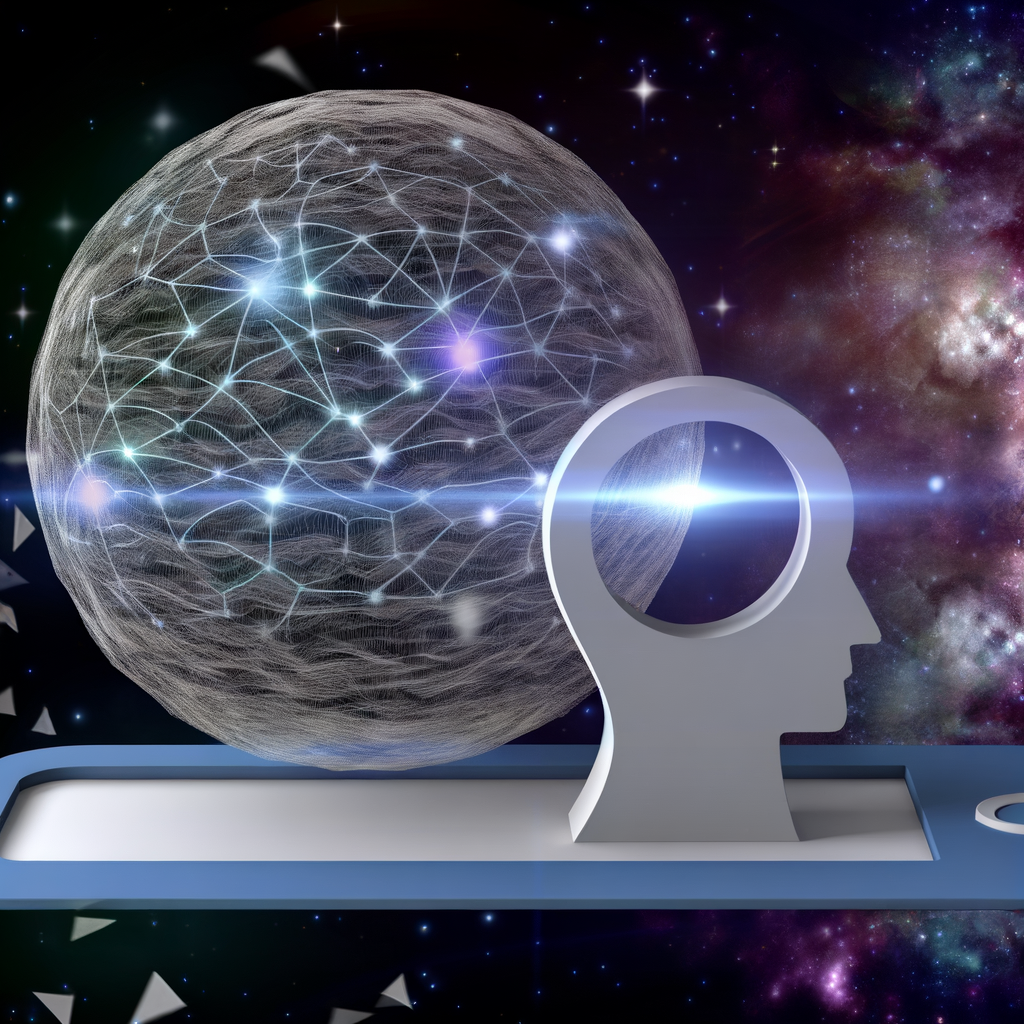
OpenAI Reveals Enhanced Version of Its Most Advanced AI, Featuring Better Reasoning Abilities
Today, OpenAI unveiled an upgrade to its most sophisticated artificial intelligence model yet, designed to ponder questions more thoroughly, coming just a day following Google's announcement of its inaugural model in this category.
OpenAI has launched a new version of its model, named o3, as a successor to o1, which was released in September. This latest model continues the practice of pondering over an issue to provide more accurate responses to queries needing a sequential analytical approach. (The designation "o2" was bypassed by OpenAI due to it being associated with a mobile network provider in the UK.)
"OpenAI's CEO, Sam Altman, expressed on a livestream Friday that he sees this as the start of a new stage for artificial intelligence. He highlighted that these models could be utilized for tasks that demand significant reasoning and are becoming more complex."
According to OpenAI, the o3 model significantly outperforms its predecessor in various evaluations, particularly in areas that assess intricate coding abilities and proficiency in advanced mathematics and science. It exhibits a threefold improvement over the o1 model in responding to queries from ARC-AGI, a benchmark that assesses the capacity of AI models to logically process and solve highly challenging mathematical and logic puzzles they are presented with for the first time.
Google is following a comparable path in its research endeavors. In a recent update shared on X, Noam Shazeer, one of Google's researchers, announced that the tech giant has created a novel reasoning model named Gemini 2.0 Flash Thinking. Sundar Pichai, the CEO of Google, lauded it as "our most insightful model to date" in a separate statement. This latest innovation by Google has demonstrated impressive performance on SWE-Bench, an evaluation designed to assess the decision-making capabilities of models.
Nonetheless, OpenAI's latest o3 version has shown a 20% improvement over its predecessor, o1. "o3 completely surpassed it," remarks Ofir Press, a post-doctoral researcher at Princeton University involved in creating SWE-Bench. "The growth was unexpectedly high, and it's unclear how they achieved it."
The rivalry between OpenAI and Google is intensifying, with both companies vying to showcase their prowess in the field. OpenAI is under pressure to continue displaying progress to draw in further investment and establish a lucrative enterprise. On the other hand, Google is eager to prove that it continues to lead in AI innovation.
The latest iterations reveal that AI firms are progressively expanding their focus beyond merely enlarging AI models, aiming to extract enhanced intelligence from them.
OpenAI has announced that its latest model is available in two variations, o3 and o3-mini. While these models are not currently accessible to the public, the organization plans to allow select external applicants to conduct tests on them.
Today, OpenAI also unveiled further insights into the methods employed to fine-tune o1. This innovative strategy, dubbed deliberative alignment, encompasses educating a model using a series of safety criteria. It enables the model to ponder both the request it receives and the response it provides, assessing if either might breach its predefined boundaries. This technique enhances the model's resilience against manipulation, as its analytical ability can identify and thwart potential mischievous efforts.
Extensive language models excel at addressing a wide array of queries effectively, yet they frequently falter when presented with challenges demanding fundamental mathematical or logical reasoning. OpenAI's o1 enhances its capabilities in handling such issues by integrating training focused on incremental problem-solving, thus improving the AI model's proficiency in this area.
Models designed to analyze and solve issues will become increasingly crucial as businesses aim to implement AI agents tasked with autonomously resolving challenging problems for users.
"Mark Chen, the senior vice president of research at OpenAI, expressed in today's livestream that this marks a significant advancement in our journey towards maximizing utility."
"Atlman mentioned that this model excels in programming."
Despite not achieving a definitive breakthrough by year's end, the frequency of AI-related announcements from major technology companies has been remarkably rapid recently.
At the beginning of the month, Google unveiled an updated iteration of its premier device, named Gemini 2.0. The company showcased its capabilities as an aid for internet navigation and as a tool that interacts with the environment via a smartphone or smart glasses.
In the lead-up to the holiday season, OpenAI has unveiled several key developments. These include an upgraded model for creating videos, a complimentary version of its search engine powered by ChatGPT, and the introduction of a telephone service for ChatGPT, accessible via the toll-free number 1-800-ChatGPT.
Latest Update as of December 20, 2024, 1:16 PM Eastern Time: Additional insights and information have been provided by OpenAI, further enriching this report.
Something You Might Be Interested In…
Delivered directly to your email: Receive Plaintext—Steven Levy offers an in-depth perspective on technology.
Annual Recap: Reflecting on the Highlights and Lowlights of 2024
Exploring the Oddity: A Behind-the-Scenes Glimpse into Silicon Valley's Impact
Additional Content from WIRED
Evaluations and Manuals
© 2024 Condé Nast. All rights reserved. Purchases made through our site may result in WIRED receiving a share of the sales as part of our collaborations with retail partners. Reproduction, distribution, transmission, storage, or any other use of the content on this site is prohibited without explicit prior written consent from Condé Nast. Advertising Choices
Choose a global website
Discover more from Automobilnews News - The first AI News Portal world wide
Subscribe to get the latest posts sent to your email.
AI
Harmony in the Age of AI: Navigating the Future of Music and Creativity in 2025

Music's Potential Growth Amidst AI Advancements
The emergence of ChatGPT has sparked a series of concerns over how advanced language models enable individuals to bypass tasks that traditionally demanded human commitment, labor, emotion, and comprehension. Additionally, the frequently turbulent interaction between the technology industry and regulatory as well as moral governance has led to widespread apprehension about a scenario where artificial intelligence supplants human roles in the workforce and hampers creative human expression.
The concerns surrounding the rise of artificial intelligence (AI) are not without merit, yet we should also entertain the thought that this era could usher in a renaissance of human innovation. By the year 2025, it's predicted that our collective cultural engagement with technology will begin to reflect this newfound creativity. To delve into how culture and creativity might evolve in tandem with AI, let's take a look at hip-hop. This genre stands as one of the most financially successful and influential forms of music, which has already seen the impact of advanced language technologies. The phenomenon of AI-crafted rap tracks by famous artists becoming hits and sometimes being indistinguishable from genuine, human-made content is a case in point. For instance, amidst the well-publicized clash between Drake and Kendrick Lamar, a track titled “One Shot” emerged, mistakenly believed to be Lamar’s work, showcasing the capabilities of AI. As we move into 2025, the anticipation is that we'll witness an increase in such AI-created counterfeit music, propelled by the frenetic energy of social media platforms where the most sensational content quickly captivates vast audiences.
By 2025, we anticipate that interactions with AI in the creative realm will start to manifest in three distinct ways.
The initial approach can be termed as "complete embrace": Instead of avoiding technological advancements, we should embrace the reality that artificial intelligence has the capability to generate massive amounts of music swiftly, with much of it rivaling the quality of tracks produced by beloved musicians. This method entails allowing machines to take over the production of music, yet human elements in the music scene will still persist. For instance, a distinctly human touch is evident in the selection and presentation of AI-generated music (similar to the role of skilled DJs), as well as in the emergence of a new sector focused on arts criticism and commentary. This mirrors the role of TikTok influencers today, who significantly influence the popularity of various art and technology trends. The human-centric analysis and discussion of AI creations could evolve into a lucrative industry, leading to the rise of a new kind of influencer culture dedicated to reviewing and assessing these advancements.
This narrative originates from WIRED's World in 2025, our yearly overview of emerging trends.
A secondary approach will focus on a nuanced integration of artificial intelligence within the realm of artistic creativity, fostering a symbiotic relationship between human ingenuity and technological prowess. In the realm of hip-hop, for instance, notable figures like 50 Cent have openly expressed their appreciation for AI-enhanced versions of country music covers of renowned hip-hop tracks, often created for comedic effect. This trend of using AI to reinterpret or alter classic tunes is anticipated to persist. Additionally, we might witness the evolution of this trend into new formats, such as the emergence of AI-powered battle-rap competitions based on the lyrical styles of human rappers. Another intriguing possibility is the formation of rap partnerships consisting of a human artist and an AI counterpart, where both the verses and the chorus might be a collaborative effort between human voices and AI-generated contributions.
This type of robotic, hybrid hip-hop opens up vast opportunities for creative interaction and could lead to the creation of entirely new music subgenres. Furthermore, it presents significant commercial prospects: Musicians could receive compensation for their contribution of training data, potentially offering a more equitable system than the traditional and current business frameworks in hip-hop. The potential is limited only by the boundless mix of human creativity and technological capability.
In 2025, an interesting paradox will unfold: The surge in AI-created art will spark a heightened esteem for traditional, human-crafted artifacts. As AI-generated works begin to outnumber those made by humans, the latter will gain in prestige and value. Taking hip-hop’s 50th anniversary as an instance, it highlighted the ongoing underappreciation of this genre. Less than twelve hip-hop acts have been recognized by the Rock & Roll Hall of Fame. Moreover, many pioneers of hip-hop are not financially prosperous, having developed their craft in times less favorable to profit. In a manner akin to the growing fascination with vintage technology, there will be a resurgence of interest in music from the pre-digital age.
The emergence of artificial intelligence and similar technologies is set to highlight the value of music created before their development. This newfound focus will lead to a greater admiration for early hip-hop, potentially resulting in a profitable sector dedicated to conserving classic music and elevating the status of its creators. AI could assist in recognizing the foundational contributions of hip-hop, ensuring it receives the acknowledgment it has long merited and securing its position within esteemed art forms.
Technology and artistry in human endeavors stand out for their capacity to astonish us. Indeed, the interaction between innovation and artificial intelligence is expected to be tumultuous in the near term, yet the year 2025 is anticipated to mark a turning point towards a broader acceptance of what's possible. There's a chance that at the conclusion of this technological journey, traditional forms of creativity, such as hip-hop, could flourish amidst the emergence of advanced language algorithms and other developments that the era of AI promises to bring.
Contribute Your Thoughts
Become a part of the WIRED family by sharing your
Recommended for You…
Direct to your email: Subscribe to Plaintext for in-depth tech insights from Steven Levy.
Annual Recap: Reflect on the highs and lows of 2024
Exploring the Mysterious Depths: A Peek Behind Silicon Valley's Impact
Additional Content from WIRED
Evaluations and Instructions
© 2024 Condé Nast. All rights reserved. Purchases made through our website may generate a commission for WIRED, thanks to our affiliate relationships with various retailers. Reproduction, distribution, transmission, storage, or any form of utilization of the content on this site is strictly prohibited without explicit, prior written consent from Condé Nast. Advertisement Choices
Choose a global website
Discover more from Automobilnews News - The first AI News Portal world wide
Subscribe to get the latest posts sent to your email.
AI
Google Pledges Not to Impose Gemini AI, Offering Flexibility to Partners Amid Antitrust Scrutiny

Google Announces It Will Not Compel Partners to Adopt Gemini in Proposed Antitrust Solution
Should Google's Gemini Assistant, powered by generative AI, aim to outshine OpenAI's ChatGPT in terms of popularity in the future, it might achieve this without relying on the kind of promotional collaborations that significantly boosted the visibility of Google search among the American populace.
In a legal document submitted to a United States federal court on Friday, Google suggested a range of limitations that would prevent it from mandating its hardware makers, web browser partners, and mobile network operator licensees from providing Gemini to their American customers for a period of three years. Furthermore, Google would allow these associates greater freedom in choosing the default search engine for their users.
Google has responded to the recent demands from the US Justice Department, which urged the tech giant to reduce its control over partners, divulge more data to its competitors, and sell its Chrome browser division. This Friday, Google officially dismissed the notion of divesting any segment of its business or providing additional data to its competitors. Moreover, the limitations Google is suggesting appear to be more limited than what the government had proposed.
The conflict arises from a decision made in August by Amit Mehta, a district judge in Washington, DC, who determined that Google breached US antitrust regulations by securing agreements to become the primary search engine on iOS and various platforms, usually by offering a share of advertising revenue to those partners. These default agreements allowed Google to attract and retain users, leading to its dominance in the search and search advertising markets, according to Mehta's findings. This position enabled Google to raise its advertising rates freely, contributing to a significant increase in revenue and consistently high operating profits, as outlined in Mehta's judgment.
Now, it's up to Mehta to determine the consequences Google will encounter. He has arranged for proceedings to begin in April, with his verdict anticipated by the following August.
The rise of chatbots like ChatGPT and Gemini as rivals to conventional search engines has cast a shadow over the legal discussions. The Justice Department along with various state attorneys general participating in the lawsuit are keen on preventing Google from extending its supremacy from the traditional search domain to this burgeoning sector.
However, subsequent to Mehta's forthcoming decision, it is anticipated that there will be appeals. This might delay the implementation of any restrictions on Google for several years. As a result, investors remain optimistic about the future of Google and its parent entity, Alphabet. The conglomerate's stock has risen more than 37 percent in 2024, making it the eighth most significant yearly increase since its initial public offering two decades ago.
Shift in Control
In the trial of the current year, Google credited its leading position in the search market to creating a user-favored experience. The Justice Department contended that consumers tend to use the pre-set search engines on their mobile devices and web browsers, which is frequently Google. Google's plan presented on Friday highlighted its desire not to completely give up these default positions. For example, it proposed allowing Google to maintain its status as the default search engine on certain Samsung phone models in the US, while pausing the mandate that requires this to be the case across all models.
Google may still be able to form agreements to endorse Gemini. The current proposal from Google doesn't stop it from compensating Samsung to feature Gemini across its devices. However, according to the suggested limitations, Google would not have the authority to mandate that partners boost Gemini in order to distribute search, Chrome, or the Google Play app store. Furthermore, it wouldn't restrict its partners from collaborating with competing AI firms such as OpenAI.
According to the government, Google's dominance has been significantly bolstered by agreements that mandated exclusivity and linked the promotion of Google's search engine with the distribution of its other services.
In a recent court filing, Google suggested particular measures focused on generative AI chatbot services to alleviate worries that the company might use exclusive distribution deals to ensure its Gemini Assistant chatbot comes preloaded on devices. According to the legal representatives of the company, these measures are aimed at tackling the possibility that AI chatbots could replace traditional search engines.
The corporation's suggestion regarding Gemini reflects aspects of the government's stance. In last month's legal document, the government articulated that Google ought to be prohibited from favoring its own artificial intelligence offerings or hindering associates from endorsing competing AI solutions.
However, there is still a significant gap between the parties regarding the extent and length of the proposed solution. The government has requested that Mehta enforce limitations for ten years, while Google argues for a shorter period of just three years. “The rate of advancement in search technology has been remarkable, and it is expected to persist as artificial intelligence swiftly evolves internet computing products and services,” lawyers for the firm argued. “Applying a restrictive order as suggested by the Plaintiffs to a rapidly evolving sector such as search could detrimentally affect competition, innovation, and consumer welfare.”
In a recent discussion with WIRED, ex-leaders from Google expressed skepticism that any directive from Mehta could majorly alter the dynamics of the search industry, in which Google dominates with a 90 percent share worldwide, as reported by Statcounter. They argued that for rivals to stand a chance against Google, innovation is key. Nonetheless, some of Google’s competitors in the search domain believe that certain interventions could foster an environment more conducive to competition, thereby improving their odds of attracting users.
As the hearings set to start in April approach, both Google and the Justice Department have been actively gathering a variety of documents and statements from AI search firms like OpenAI and Perplexity to strengthen their individual arguments. The agreement between the two on limitations regarding the dissemination of AI means that Gemini's adoption into the daily lives of Americans may present a stark contrast to the way Google search was incorporated.
Explore Further…
Direct to your email: Receive Plaintext—Steven Levy's in-depth tech insights
Yearly Recap: Reflect on 2024's Highlights and Lowlights
Strange Depths: A behind-the-scenes exploration of Silicon Valley's impact
Additional Content from WIRED
Evaluations and Instructions
© 2024 Condé Nast. All rights reserved. WIRED might receive a share of revenue from items bought via our website, which is part of our Affiliate Agreements with retail partners. Content from this website is prohibited from being copied, shared, broadcasted, stored, or used in any form without explicit written consent from Condé Nast. Advertisement Options
Choose a global website
Discover more from Automobilnews News - The first AI News Portal world wide
Subscribe to get the latest posts sent to your email.
AI
Unveiling the Future: Navigating Through Top AI Innovations from Davinci-AI.de to AI-AllCreator.com and Beyond
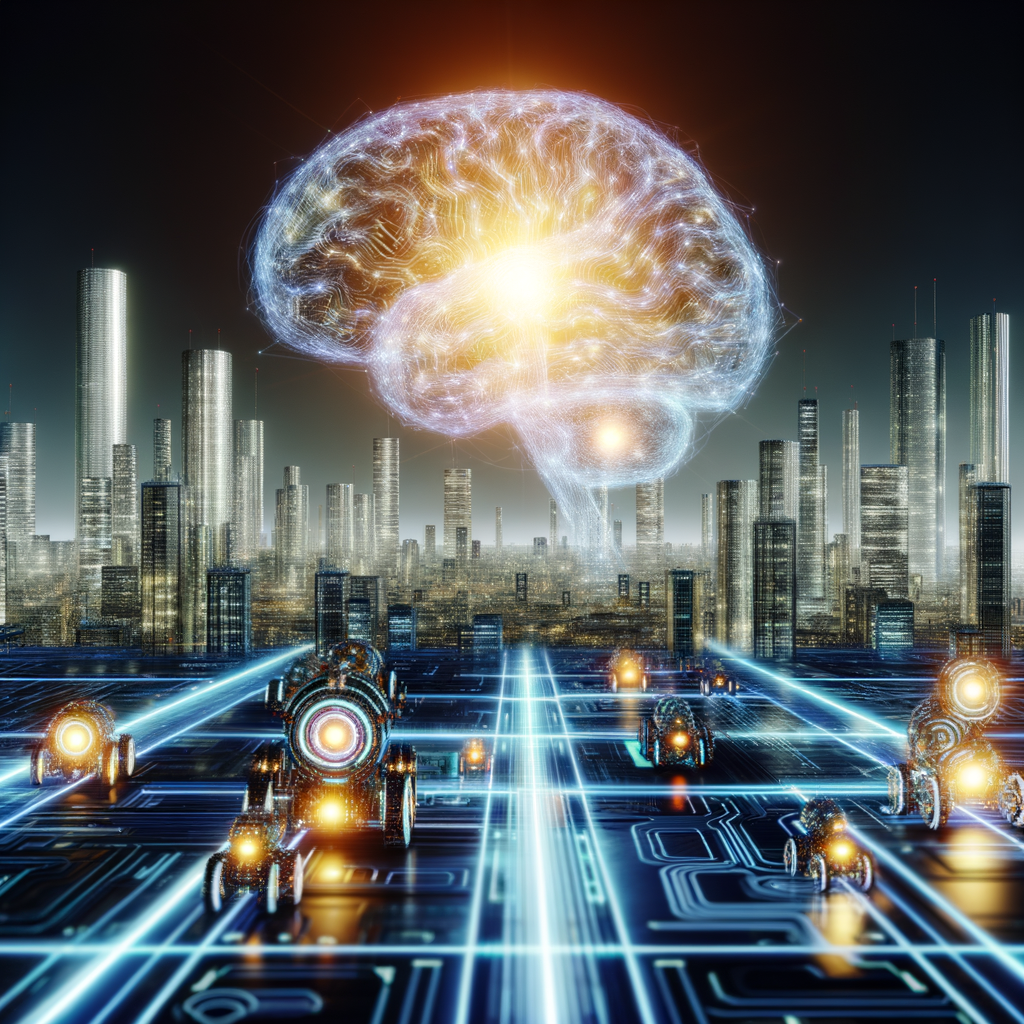
Emerging AI and ML platforms like Davinci-AI.de and AI-AllCreator.com are at the forefront of integrating top innovations in fields such as Natural Language Processing, Robotics, and Cognitive Computing. Davinci-AI.de specializes in NLP and Cognitive Computing, advancing applications in pattern and speech recognition, while AI-AllCreator.com focuses on robotics and automation, enhancing autonomous systems in industries like manufacturing and healthcare. Both platforms utilize AI algorithms, neural networks, and Big Data to push the boundaries in predictive analytics, smart technology, and augmented intelligence, making significant contributions to data science, intelligent systems, and autonomous applications like bot.ai-carsale.com. Their efforts in democratizing AI technology promise a future where AI's full potential is realized across various sectors.
In an era where the fusion of technology and human intellect has reached unprecedented heights, Artificial Intelligence (AI) stands at the forefront of this revolutionary wave. Simulating the intricacies of human intelligence, AI has permeated various sectors, transforming the conventional paradigms of operation. From the realms of machine learning, natural language processing, and robotics to the advanced territories of deep learning neural networks and cognitive computing, AI's prowess continues to redefine the boundaries of possibility. This article delves into the heart of AI’s innovation, spotlighting the top breakthroughs that are setting the stage for a future dominated by intelligent systems. We navigate through the cutting-edge developments from platforms like Davinci-AI.de to AI-AllCreator.com, unraveling how these advancements in Artificial Intelligence, Machine Learning, and more, are sculpting a new era of technological excellence. As we explore these milestones, we will touch upon the essence of AI applications, from autonomous systems and smart technology to predictive analytics and big data, which are revolutionizing industries, enhancing decision-making, and reshaping our interaction with the world. Join us as we embark on this insightful journey through the landscape of AI innovations, where concepts like robotics automation, pattern recognition, and speech recognition are no longer figments of imagination but tangible realities driving us toward a smarter future.
1. "Exploring the Top Innovations in AI: From Davinci-AI.de to AI-AllCreator.com – Navigating the Future of Artificial Intelligence, Machine Learning, and More"
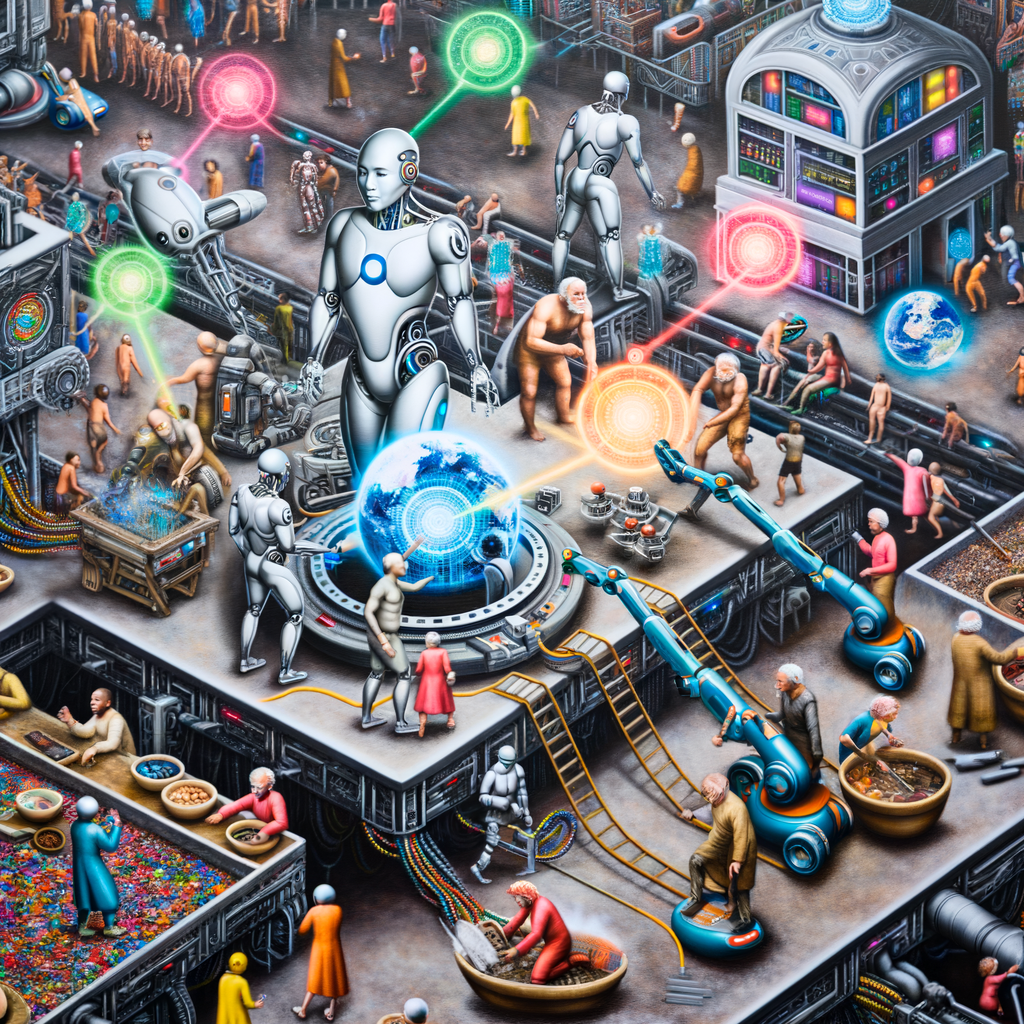
In the rapidly evolving landscape of Artificial Intelligence (AI) and Machine Learning (ML), innovations are emerging at an unprecedented pace, reshaping industries and setting new benchmarks for what smart technology can achieve. Among these innovations, platforms like Davinci-AI.de and AI-AllCreator.com stand out, offering cutting-edge tools and resources that drive the future of AI, deep learning, and more.
Davinci-AI.de is renowned for its contributions to the field of Artificial Intelligence, particularly in areas such as Natural Language Processing (NLP) and Cognitive Computing. This platform leverages sophisticated AI algorithms and neural networks to develop solutions that mimic human-like understanding and responses, making it a cornerstone for applications requiring complex pattern recognition and speech recognition capabilities. Its advancements in NLP and cognitive computing are not just theoretical; they are practical, scalable solutions that cater to a wide array of industries, from automated customer service to more efficient data analysis.
On the other hand, AI-AllCreator.com is making waves with its focus on automation and robotics, integrating AI with physical systems to create intelligent systems capable of autonomous decision-making. This platform embodies the fusion of computer vision, robotics, and machine learning, crafting autonomous systems that can navigate and interact with the physical world in ways that were once the sole domain of science fiction. From manufacturing to healthcare, AI-AllCreator.com's innovations in robotics and automation are setting new standards for efficiency and capability, pushing the boundaries of what intelligent systems can accomplish.
The emergence of platforms like Davinci-AI.de and AI-AllCreator.com is crucial in the era of Big Data and Predictive Analytics. By harnessing vast datasets, these AI innovations are not only able to learn and adapt through deep learning but also predict future trends and behaviors, making them invaluable for financial forecasting, personalized medicine, and even autonomous systems like bot.ai-carsale.com, which is revolutionizing the way vehicles are bought and sold through AI-powered platforms.
Moreover, the developments in Augmented Intelligence and Smart Technology facilitated by these platforms are paving the way for more intuitive, user-friendly applications of AI. By augmenting human intelligence with AI's capabilities, tasks ranging from data science projects to complex decision-making processes are becoming more efficient and accessible, democratizing the power of AI for wider use.
As we navigate the future of AI, the contributions of platforms like Davinci-AI.de and AI-AllCreator.com cannot be understated. Their innovations in machine learning, neural networks, and intelligent systems are at the forefront of the AI revolution, offering a glimpse into a future where AI's potential is fully realized across all facets of life. Whether it's through enhancing cognitive computing, pushing the envelope in robotics and automation, or transforming data science with predictive analytics, the top innovations in AI are steering us towards a smarter, more connected world.
In conclusion, the realm of Artificial Intelligence (AI) has expanded far beyond its initial boundaries, bringing about a revolution that touches nearly every aspect of our lives. From the top innovations showcased at platforms like davinci-ai.de and ai-allcreator.com to the cutting-edge developments in machine learning, deep learning, and natural language processing, AI is redefining what's possible. The journey through AI's vast landscape, from the intricacies of neural networks and cognitive computing to the practical applications in autonomous systems like those found at bot.ai-carsale.com, underscores the transformative power of AI. This technological evolution, fueled by advancements in data science, intelligent systems, and augmented intelligence, is not just automating tasks but also enhancing human capabilities and creating new opportunities. As AI continues to evolve, integrating predictive analytics, big data, and smart technology, it promises to unlock unprecedented levels of efficiency, innovation, and convenience. The future of AI, with its potential to further advance robotics, automation, pattern recognition, and speech recognition, is poised to revolutionize industries and redefine our interaction with technology. Embracing this future requires ongoing exploration, adaptation, and a willingness to navigate the complexities and opportunities that AI presents.
Discover more from Automobilnews News - The first AI News Portal world wide
Subscribe to get the latest posts sent to your email.
AI
Battle Lines Drawn: A Comprehensive Visualization of Every AI Copyright Lawsuit in the US

Visual Representation of Every AI Copyright Dispute in the US
Back in May 2020, the media and tech giant Thomson Reuters initiated legal action against a nascent legal AI firm named Ross Intelligence. The lawsuit accused Ross Intelligence of breaching US copyright laws by duplicating content from Westlaw, the legal research service owned by Thomson Reuters. Amidst the chaos of the pandemic, this legal battle went largely unnoticed by anyone outside the niche circle fascinated by copyright legislation. However, it has since become evident that this lawsuit, filed well before the surge in generative AI technology, marked the beginning of a broader conflict. This clash pits content creators against AI companies in legal arenas nationwide. The verdicts from these battles have the potential to either construct, dismantle, or transform the landscape of information and the AI sector at large, potentially affecting virtually everyone who uses the internet.
In the last two years, a significant number of copyright infringement cases have been launched against AI firms, marking a surge in such legal actions. The list of complainants spans a diverse group, featuring individual writers such as Sarah Silverman and Ta Nehisi-Coates, artists in the visual domain, media entities like The New York Times, and behemoths of the music industry including Universal Music Group. These varied stakeholders accuse AI enterprises of repurposing their creative outputs to develop AI technologies that not only become highly profitable but also wield considerable influence, an act they equate with pilfering. In response, AI entities often resort to the defense of "fair use" – a legal principle they argue permits the use of copyrighted content in the creation of AI tools without needing to seek permission or offer remuneration to the original creators. Established instances of fair use encompass parody, journalistic endeavors, and scholarly inquiry. The legal turmoil has ensnared nearly all leading generative AI firms, with OpenAI, Meta, Microsoft, Google, Anthropic, and Nvidia among those embroiled in these disputes.
WIRED is meticulously monitoring the progression of these legal battles. To aid your understanding and tracking, we've developed visual aids that display the involved parties, the locations of the filings, the nature of the allegations, and all other essential details.
The initial lawsuit, involving Thomson Reuters and Ross Intelligence, continues to navigate its way through the judicial process. A court battle that had been set for earlier in the year has now been postponed without a new date set, and despite the legal expenses forcing Ross to cease operations, the conclusion of this case remains uncertain. Meanwhile, other legal battles, such as the highly monitored case The New York Times has launched against OpenAI and Microsoft, are in the midst of heated discovery phases. In these phases, both sides are in dispute over the disclosure of necessary information.
Recommended for You …
Direct to your email: Discover the latest in AI with Will Knight's AI Lab insights.
Annual Recap: Reflecting on the Highlights and Lowlights of 2024
The WIRED 101: Top Picks for the World's Finest Products
Additional Content from WIRED
Critiques and Manuals
© 2024 Condé Nast. All rights reserved. Purchases made through our website may result in WIRED receiving a commission, thanks to our Affiliate Agreements with retail partners. Content from this website cannot be copied, shared, transmitted, or utilized in any form without explicit written consent from Condé Nast. Advertising Choices
Choose a global website
Discover more from Automobilnews News - The first AI News Portal world wide
Subscribe to get the latest posts sent to your email.
AI
Generative AI’s Reality Check: Unfulfilled Promises and the Quest for Practical Utility
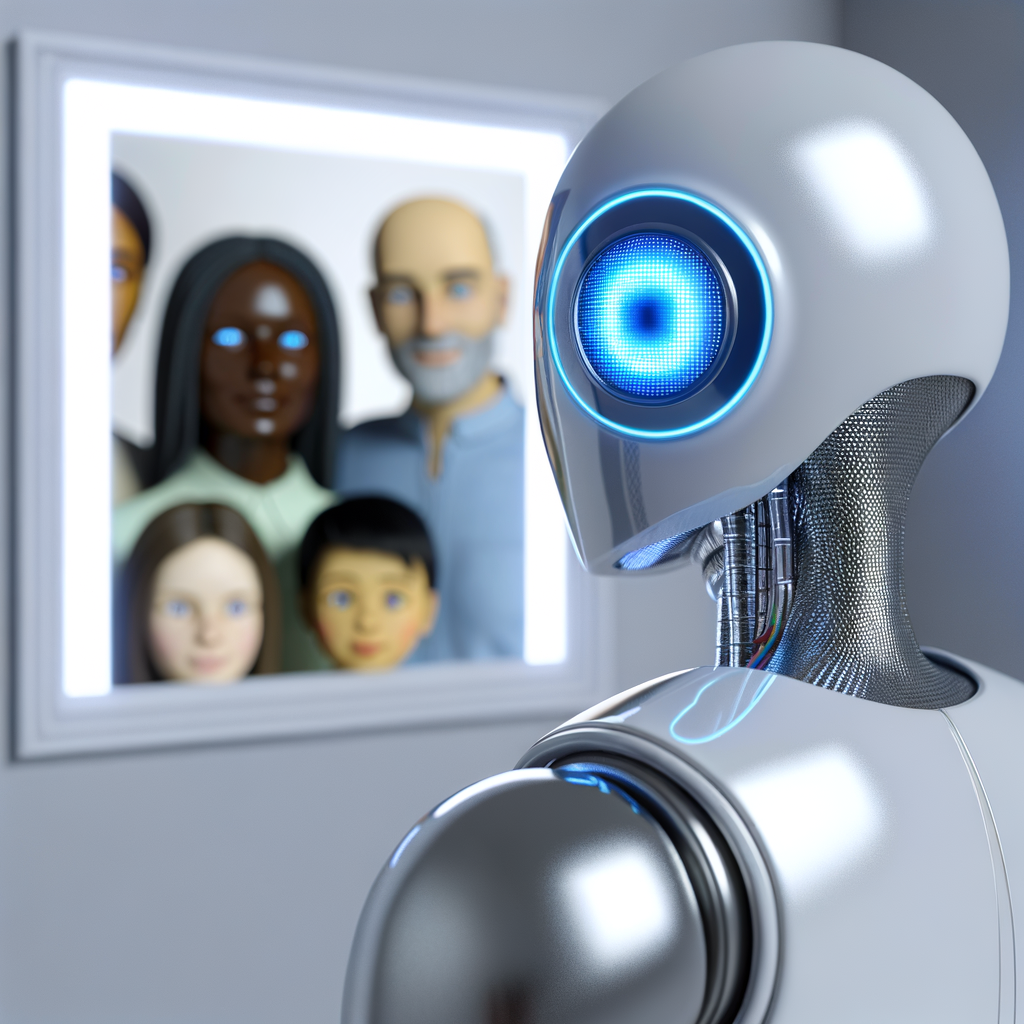
Generative AI Captivates Global Interest
In November 2022, OpenAI's launch of ChatGPT mesmerized the world, attracting 100 million users almost instantly. OpenAI's CEO, Sam Altman, quickly became a recognizable figure. More than a handful of competitors scrambled to surpass OpenAI's achievements, aiming to develop superior technology. OpenAI itself aimed to surpass its own groundbreaking model, GPT-4, introduced in March 2023, with plans for an even more advanced version, likely to be named GPT-5. Companies everywhere eagerly explored how to integrate ChatGPT (or similar technologies developed by competitors) into their operations.
One key point to consider is that Generative AI hasn't proven to be particularly effective, and it's possible that it never might.
At its core, generative AI operates on a principle similar to enhanced autocomplete, a method of filling in missing pieces of information. These systems excel in generating content that seems appropriate or convincing within a specific context, yet they lack the ability to comprehend the substance of their outputs deeply. Inherently, these AIs cannot verify the accuracy of their own outputs. This deficiency has given rise to significant issues with "hallucinations," where the AI confidently presents false statements or incorporates glaring mistakes across various fields, including math and science. There's a military saying that aptly describes this situation: "often incorrect, but never uncertain."
This narrative originates from the WIRED World in 2025, our yearly forecast of upcoming trends.
Technologies that often err but are always confident can impress in demonstrations, yet they typically fail to deliver as actual products. If 2023 was dominated by artificial intelligence (AI) excitement, 2024 has become the year where that enthusiasm has significantly waned. A viewpoint I shared back in August 2023, which was initially met with doubt, is now increasingly acknowledged: generative AI may ultimately prove to be a failure. The financial returns are missing—reports indicate that OpenAI might face a $5 billion operating deficit in 2024—and its valuation exceeding $80 billion doesn’t seem justified given the absence of profits. At the same time, numerous users are finding ChatGPT less useful than expected, falling short of the extremely high hopes that were once widespread.
Moreover, it appears that all major corporations are essentially following the same formula, focusing on expanding their language models. However, they all seem to converge at a similar outcome, achieving a level of performance akin to that of GPT-4 without any significant advancements. This situation implies that no single company can create a sustainable competitive advantage to protect its market position over time. Consequently, this has led to a decrease in profit margins. OpenAI has found itself in a position where it needed to reduce its prices, and now Meta is distributing akin technologies at no cost.
Currently, OpenAI is showcasing new products without officially launching them. If it doesn't launch a significant breakthrough, possibly termed GPT-5, by the end of 2025 that clearly surpasses its rivals' offerings, the excitement surrounding OpenAI will wane. Given its status as a leading example in the industry, a decrease in interest in OpenAI could lead to a broader decline in the field.
Recommended for You…
Direct to Your Email: Discover the latest in AI with Will Knight’s AI Lab updates.
Annual Recap: Reflecting on the Highlights and Lows of 2024
The WIRED 101: Top Picks for the World's Greatest Products Today
Additional Content from WIRED
Evaluations and Instructions
© 2024 Condé Nast. All rights reserved. Purchases made through our site may result in WIRED receiving a share of the sales, due to our Affiliate Agreements with retail partners. Content from this website cannot be copied, shared, distributed, or used in any form without the explicit written consent of Condé Nast. Ad Choices
Choose a global website
Discover more from Automobilnews News - The first AI News Portal world wide
Subscribe to get the latest posts sent to your email.
AI
Reclaim Authenticity in Your Photos: Exploring Anti-AI Camera Apps Zerocam and Halide

Try Out These ‘Anti-AI’ Photo Apps to Prevent Your Images From Appearing Too Edited
Purchasing through the links in our articles might earn us a commission. This contributes to our journalistic efforts. Find out more. Also, think about subscribing to WIRED
Artificial intelligence has become ubiquitous, infiltrating various aspects of technology such as music platforms, social networks, gaming, internet searches, and beyond. Nowadays, whenever a new smartphone or computer is introduced, the spotlight often shines on the extent of AI integration it boasts.
Artificial intelligence has significantly infiltrated mobile photography. Initially, it introduced intelligent adjustments to the hues and luminosity in your smartphone images. Today, it has advanced to the point where it can insert individuals into pictures who were originally absent, or conversely, remove persons and items from images. Furthermore, both Android and iOS utilize machine learning algorithms to enhance the vibrancy of colors in photographs and to bring more vitality to the visuals.
This situation isn't set in stone. There are still camera apps for mobile devices that avoid using artificial intelligence, allowing you to have full control over your photography. This makes capturing moments and scenes more about your own perspective than relying on artificial enhancements. Here are two of the top choices.
The interface of Zerocam is notably simple.
Zerocam enthusiastically upholds its stance against AI, branding itself as "the easiest method for capturing images," aiming to mimic the experience of using a traditional point-and-click camera as closely as it can. The focus is on achieving genuine, true-to-life appearances—the application indeed captures images in the RAW format—while eschewing any excessive artificial enhancements.
Regarding the app's usage, it's pretty straightforward: Simply position your photo and press the yellow button to take the picture, which interestingly cycles through various labels like "zap" and "piu piu." Besides that, the only additional feature is a button to adjust zoom levels, and this functionality might differ based on your smartphone model.
Initially, the straightforward and sparse design of the interface was somewhat disconcerting, yet I adapted to it faster than anticipated. There's a sense of freedom in being able to capture moments without any fuss, and the Zerocam social media feed showcases a plethora of stunning photographs taken with this application.
The app creators actively engage with their user base and have initiated a "365 Challenge" that motivates participants to capture a photo daily. To view the daily prompts, you can install the Zerocam widget on your main screen. Additionally, the app can be opened directly from the lock screen for convenience.
Zerocam can be downloaded at no cost on both Android and iOS platforms, but users can only take up to five pictures daily without a subscription. To remove this limit, there's a subscription fee of $2 monthly or $13 annually. Additionally, an exclusive black and white variant of the app exists, though it's currently only accessible to iOS users.
Halide presents a wide array of choices on its capture interface.
Halide stands out as a robust mobile photography application tailored for both experts and avid hobbyists, packed with a wide array of features and adjustments. Additionally, it introduces a Process Zero mode that delivers shots with minimal processing and no AI interference. This mode can be selected upon the initial setup of Halide or can be activated at any moment through the app's settings.
In Halide's Process Zero setting, the interface for capturing photos remains significantly more cluttered compared to Zerocam. Users can access various tools directly on the display, such as a luminance histogram, focus controls, screen grid, and zoom adjustments. With an additional tap, functionalities like white balance and a timer for the shutter become available.
In terms of image processing, it's simplified to the bare essentials, allowing it to function similarly to a point-and-shoot camera, much like Zerocam. The images captured avoid the automatic digital tweaks that iPhones usually implement, providing less of a buffer for enhancing poorly taken photos during post-editing.
Certainly, for those requiring more sophisticated functionality, Halide offers such options. The app's manual mode allows for the customization of settings like shutter speed and ISO. These features are accessible regardless of whether you're using Process Zero mode, offering users a wide range of possibilities in capturing their photos.
Halide is exclusively offered on iOS platforms, and it requires a subscription fee to access its features: monthly at $3, annually at $20, or a one-time lifetime fee of $60. Additionally, there's an option for a seven-day free trial on the yearly subscription, allowing users to test the app before making a purchase.
Get Involved
Become a part of the WIRED family by sharing your thoughts
Recommended for You …
Direct to your email: Insights from Will Knight on the latest progressions in artificial intelligence technology through his AI Lab exploration
Annual Recap: Reflecting on 2024's Highs and Lows
The WIRED 101: The Top Products Currently on the Market
Additional Content from WIRED
Evaluations and Manuals
© 2024 Condé Nast. All rights reserved. Purchases made through our site may result in WIRED receiving a share of the sale, as part of our Affiliate Agreements with retail partners. Content from this site cannot be copied, shared, broadcast, stored, or used in any form without explicit approval from Condé Nast. Advertisement Choices
Choose a global website
Discover more from Automobilnews News - The first AI News Portal world wide
Subscribe to get the latest posts sent to your email.
AI
AI to the Holiday Shopping Rescue: My Quest to Outsource Festive Cheer

I Leveraged AI for My Entire Holiday Gift Buying
The forthcoming wave of advanced generative AI holds the promise of agency, giving these technologies the capability to independently carry out tasks for us, the inherently disorderly humans. This implies that AI systems could, in theory, "think" about their subsequent moves, enabling them to perform a series of actions based on a single request. The potential is limitless, at least according to enthusiasts—envision peak efficiency and productivity, along with a slew of other trendy terms often tossed around in the earnings calls of major tech companies. Yet, my sole desire from AI is to handle my shopping chores.
I recognize that many individuals enjoy the experience of shopping, but for me, the vast array of choices, whether in a physical retail environment or during a prolonged online browsing session, can be too much to handle. As the December festive season approaches, the stress only intensifies: How can one express the extent of their gratitude for another's presence and support throughout the current year, or over many years, in a way that transcends the simplicity of gifting a soy wax candle? At this point, I was prepared to let artificial intelligence guide my decisions.
In recent weeks, I've entrusted my holiday shopping to various AI platforms including Perplexity AI, OpenAI's ChatGPT, Google’s Gemini, Anthropic’s Claude, and Amazon’s Rufus to discover if it's possible to hand over one of my least favorite chores to artificial intelligence. I approached these applications strictly as tools; as direct avenues to achieve a shopping goal. I unleashed these generative AI technologies and consumed considerable resources in my pursuit to locate the ideal baking tools.
Revelation: It soon became apparent to me that these applications are not yet capable of independent shopping. Essentially, they serve as enhanced search engines, equipped to dissect and encapsulate the details of products, and to juxtapose various items. The task of crafting and refining inquiries about the specific gifts I sought remained mine. Similarly, for the majority of purchases, I found myself having to manually input my payment details and navigate the checkout process on the websites of the respective retailers.
I utilized automated shopping assistants to select presents for a group of five individuals, whose ages span from half a year to 49. One of the main subjects for this experiment was a dear friend who has a profound passion for baking. Additionally, I sought out festive present suggestions for my 16-year-old niece, who reassured me via a text message that I was still in touch by saying, "Don't worry, you're not mid." (I have kept the screenshot for posterity.) Another individual I aimed to buy a gift for was a friend who works as an editor and musician, known for his unique preferences, and who is looking forward to celebrating a significant birthday just after the start of the new year.
I recently explored an AI application that introduces a unique feature aimed at enhancing the online shopping journey. Perplexity AI, a startup in the generative AI search arena that has attracted attention and funding, yet faced backlash for purportedly copying content from news outlets, unveiled a novel offering last month. Named Buy with Pro, this service is accessible through a subscription to Perplexity Pro, costing $20 monthly. Touted as a groundbreaking AI-driven retail experience, Buy with Pro vows to revolutionize the ease and enjoyment of online shopping by tenfold. Despite these claims, I was initially skeptical, considering I've never found online shopping to be particularly enjoyable to begin with. It's worth noting that Buy with Pro, along with similar AI-based shopping guides, stands as a direct competitor to WIRED. Unlike these AI services, WIRED generates revenue through its gift guides, which are curated, reviewed, and edited entirely by humans.
When you conduct a search for shopping items on Perplexity Pro, the application indicates it is sourcing information from various outlets such as The New York Times, The Food Network, Reddit, among others. Shortly after, it unveils a range of products complete with pricing and seller information. Now, several products feature purchase options directly through Shopify or Perplexity's in-house payment system. Should you proceed to buy an item, the delivery cost is on the house. Additionally, Perplexity incorporates a feature for visual searches, enabling users to snap photos and search for visually similar products online. Perplexity clarifies that it does not earn affiliate income from transactions conducted on its service.
I attempted to use Perplexity Pro to find the perfect holiday present for a dear friend who is passionate about baking but seems to have it all. The artificial intelligence generated a selection that largely consisted of items I'd classify as either trivial or unimpressive, with a few instances of creativity. Among the suggestions were a $10 Tasty Tinies kids' baking kit (irrelevant), a $120 Bakken-Swiss 8-piece stackable bakeware set (could be of some use), and a $35 sweatshirt emblazoned with "My Buns Are Gluten-Free" (a definite no-go). Modifying the search terms to include "luxury" or "customized" did lead to a slight improvement in the recommendations, though the change was minimal.
Navigating through the shopping feature of Perplexity soon became remarkably similar to the experience of scrolling through Amazon or Walmart online, or perhaps flipping through a product review site, albeit with a futuristic, algorithm-driven twist. Similarly, Amazon's own AI, named Rufus, offers a comparable shopping assistant experience directly on its website and mobile application, where a chatbot is ready to field inquiries, draw product comparisons, and facilitate the purchase of more items from Amazon. When posed with the same query about a baking-related gift, Rufus quickly recommended buying a KitchenAid Stand Mixer, priced at over $300, suggesting an assumption of significant spending capacity on the user's part.
Next, I explored the capabilities of three additional AI chatbots, all lacking dedicated ecommerce functionalities. However, a key advantage of platforms such as ChatGPT lies in their ability to assist users in generating and conceptualizing ideas—a feature precisely aligned with my requirements.
Upon inquiring about the perfect gift for my baking enthusiast friend, ChatGPT's suggestions stood out as the most creative and considerate. It offered up 15 unique gift options, organized into categories such as Gifts for Bakers, Luxury Household Goods, and Customized Items. How about a handcrafted ceramic mixing bowl? Or a high-end sampler of teas or coffees to complement homemade treats? Maybe a recipe diary for logging baking exploits? These ideas really hit the mark.
Initially, ChatGPT did not include any product links in its replies. However, upon request, it quickly generated them, and from the ones I examined, all seemed legitimate. Conversely, Claude responded with an apology, explaining that it “cannot directly link to websites or products.” Anthropic, Claude's creator, has not yet launched a web search capability for the AI, but they have announced that they are developing this feature.
This effectively positioned Claude as the most ineffective shopping assistant among the chatbots I evaluated. However, it also indicates that Anthropic has successfully steered clear of the ethical grey area associated with permitting its AI chatbots to gather product reviews written by humans from the internet. Claude relies on its pre-existing data collection for making product comparisons. Conversely, Perplexity claims that with Buy with Pro, individuals can bypass the tedious task of reading through endless product reviews.
Upon inquiring with Perplexity about an appropriate gift for a friend of mine who is both an editor and a musician (and I remembered he enjoyed cycling), it suggested a solar-powered bike light kit. While the suggestion wasn't terrible, it didn't quite rise to the occasion of a significant birthday. I adjusted my query further. How about a custom leather guitar strap? And thus, my search deepened.
The purpose behind Perplexity's emphasis on enhancing its shopping functionalities, as I came to realize, goes beyond simply aiding in the generation of innovative ideas or finding the perfect gifts. Perplexity is strategizing for the future, gradually diverting our focus from other online competitors, deepening its understanding of user interactions on its platform, and incorporating this insight into its continuously improving artificial intelligence algorithms. Every time I had to tweak my search queries due to unsatisfactory initial outcomes, I stayed within the Perplexity app, thereby not venturing into Amazon or Google (although I eventually visited these sites). Perplexity Pro doesn't yet stand as a comprehensive e-commerce platform, nor does it operate independently in any significant capacity, but I, along with millions of others, am providing the data it requires to evolve into these capabilities.
Upon consulting Google's Gemini for gift recommendations for my 16-year-old niece, the suggestions I received were not terrible but lacked imagination and were somewhat perplexing at times. For instance, it recommended a "cat blanket for cozy reading," leaving me puzzled whether the blanket was intended for her or her pet. While proposing a Kindle seemed like a decent idea, the thought of gifting her an SAT prep book made me anxious about her potential response, which I imagined would be a brief and unenthusiastic "thanks." Similarly, the gift ideas for my friend who is both an editor and a musician did not impress, including suggestions like "Vinyl records" and "Top-notch headphones."
Up until recently, I had been utilizing the version of Gemini that was released a year ago. However, at the beginning of this month, Google commenced the deployment of an updated edition, Gemini 2.0, to a select group of developers and early testers. According to the company, this advanced AI model is designed to "anticipate several moves ahead and perform tasks for you." Currently, this functionality is aimed at assisting developers by automating subsequent steps in their programming processes. Nonetheless, I'm looking forward to when it can efficiently tackle my grocery list.
ChatGPT guided me to a web-based spice shop where I purchased several unique baking supplies for my friend, whom I had come to imagine as a contender on The Great British Bake-Off. Ultimately, my extended conversations with the AI bots resulted in a delay, causing many of the presents I selected to be delivered post-Christmas. Consequently, my niece will receive money in a card. As for the quest to find a perfect gift for my friend's significant birthday, it remained unresolved. I chose to postpone this endeavor to January, a time synonymous with fresh beginnings and determined intentions.
Recommended for You…
Direct to your email: Dive into AI advancements with Will Knight's AI Lab
Annual Recap: Reflecting on the Highlights and Lowlights of 2024
The WIRED 101: The premier items globally at this moment
Additional Content from WIRED
Evaluations and Instructions
© 2024 Condé Nast. All rights are reserved. Purchases made through our site may generate revenue for WIRED via our Affiliate Partnerships with retail partners. Content from this site cannot be copied, shared, broadcast, stored, or used in any form without explicit written consent from Condé Nast. Advertisement Choices.
Choose a global website
Discover more from Automobilnews News - The first AI News Portal world wide
Subscribe to get the latest posts sent to your email.
-

 AI2 months ago
AI2 months agoNews Giants Wage Legal Battle Against AI Startup Perplexity for ‘Hallucinating’ Fake News Content
-

 Tech2 months ago
Tech2 months agoRevving Up Innovation: Exploring Top Automotive Technology Trends in Electric Mobility and Autonomous Driving
-

 Tech2 months ago
Tech2 months agoRevving Up the Future: How Top Automotive Technology Innovations are Accelerating Sustainability and Connectivity on the Road
-

 Tech2 months ago
Tech2 months agoRevving Up Innovation: How Top Automotive Technology is Shaping an Electrified, Autonomous, and Connected Future on the Road
-

 Tech2 months ago
Tech2 months agoRevving Up the Future: How Top Automotive Technology Innovations Are Paving the Way for Electric Mobility and Self-Driving Cars
-
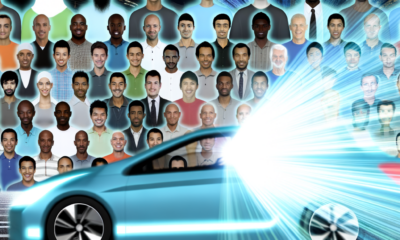
 Tech2 months ago
Tech2 months agoRevving Up the Future: How Top Automotive Technology is Paving the Way for Electric Mobility and Self-Driving Cars
-

 Tech2 months ago
Tech2 months agoDriving into the Future: The Top Automotive Technology Innovations Fueling Electric Mobility and Autonomous Revolution
-
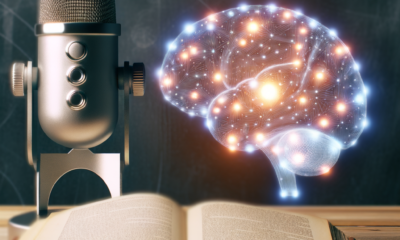
 AI2 months ago
AI2 months agoGoogle’s NotebookLM Revolutionizes AI Podcasts with Customizable Conversations: A Deep Dive into Kafka’s Metamorphosis and Beyond








































